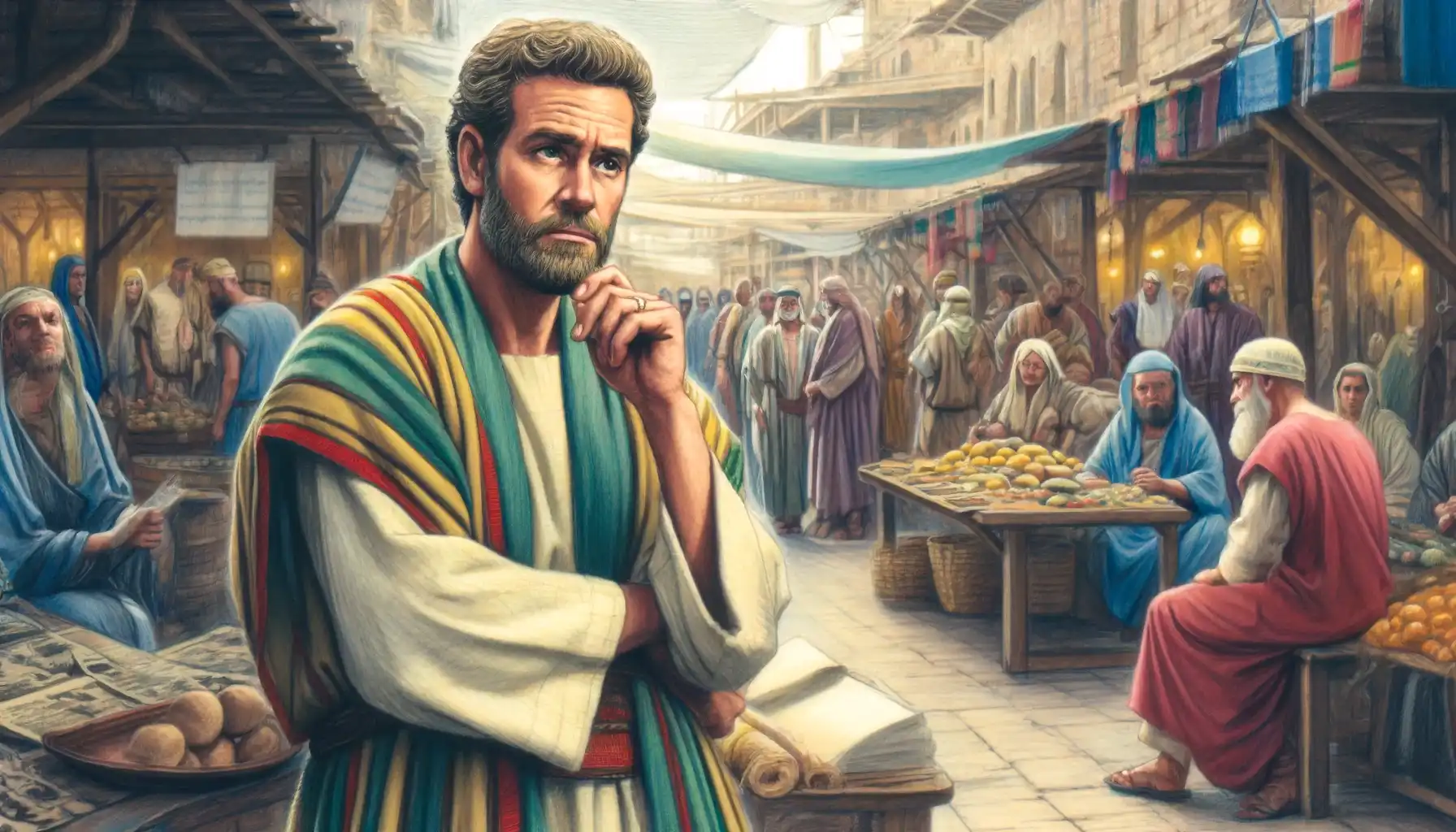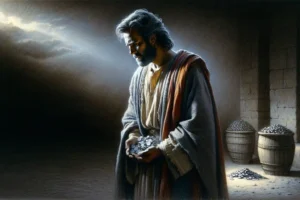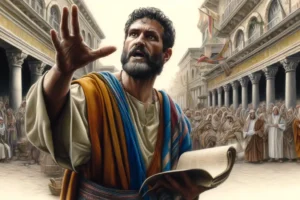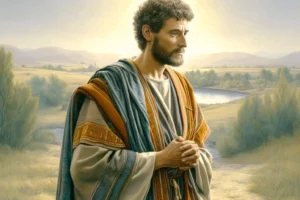
Philip: Known for his Questioning Nature
Philip the Apostle, one of the twelve disciples of Jesus, has several distinct attributes noted in the New Testament. Here are some quick facts about him:
- Background: Originally from Bethsaida, the same town as Peter and Andrew.
- Calling: Jesus personally called Philip to follow him, as recounted in the Gospel of John.
- Role in the Gospels: Known for his questioning nature, he often sought practical clarifications from Jesus.
- Evangelism: Played a significant role in the early spread of Christianity, especially among Greek-speaking communities.
- Notable Incident: Instrumental in the feeding of the 5000, Philip questioned Jesus about buying bread for the crowd.
- Interactions: Introduced Nathanael (also known as Bartholomew) to Jesus, demonstrating his early role in bringing others to Christ.
- Tradition and Martyrdom: According to tradition, Philip preached in Greece, Syria, and Phrygia, and met his martyrdom by crucifixion.
Philip the Apostle, one of the original twelve disciples of Jesus, plays a significant yet somewhat understated role in the New Testament narratives. His interactions and ministry provide insights into his character and the dynamics of early Christian evangelism.
Background and Calling
Philip, like several other apostles, hailed from Bethsaida, a town in Galilee. This shared geographic origin with disciples such as Peter and Andrew suggests a community closely connected by fishing and trade. Philip’s calling is directly recounted in the Gospel of John (John 1:43), where Jesus personally invites him to “Follow me.” This direct approach by Jesus highlights the personal connection and the immediate response that characterizes true discipleship.
Characteristics and Role
Philip is depicted in the Gospels, particularly in John, as a figure who often sought to understand the practical implications of Jesus’ teachings. His questioning nature is not indicative of doubt so much as a desire for comprehension, which reflects a pragmatic approach to the miraculous and metaphysical aspects of Jesus’ ministry.
For example, during the feeding of the 5000, Philip’s response to Jesus about the logistical impossibility of feeding such a large crowd with limited resources (John 6:7) underscores his practical mindset. Similarly, during the Last Supper, Philip’s request to Jesus to “show us the Father” (John 14:8) exemplifies his desire for tangible understanding in spiritual matters.
Evangelistic Efforts
Philip’s ministry extended beyond the narrative confines of the Gospels. The Acts of the Apostles records his evangelistic work, notably his encounter with the Ethiopian eunuch (Acts 8:26-40). This incident not only demonstrates Philip’s obedience to divine guidance but also his role in expanding the Christian message beyond Jewish communities, a key development in the early church’s history.
According to various church traditions, Philip continued his ministry in regions including Greece, Syria, and Phrygia (in modern-day Turkey). His efforts in these areas reportedly led to conversions but also to conflict with local authorities who opposed his teachings.
Martyrdom
Tradition holds that Philip met a martyr’s death, which, depending on the source, occurred either by crucifixion or by other forms of execution. His martyrdom, like that of other apostles, symbolized the ultimate witness to the faith he preached and the transformative power of the Gospel.
Legacy
Philip’s legacy, though less prominently celebrated than that of Peter or Paul, is critical in understanding the spread of early Christianity. His interactions in the Gospel of John provide a nuanced portrayal of a disciple grappling with the complexities of faith, a theme that resonates with believers seeking to reconcile the practical and the divine. His evangelistic mission highlights the apostolic commitment to spreading Jesus’ teachings despite significant challenges and opposition.
In summary, Philip the Apostle exemplifies the dedicated follower of Christ, whose life was transformed from ordinary beginnings in Galilee to a cornerstone of early Christian outreach and teaching. His story enriches the tapestry of apostolic history and offers enduring lessons in faith, understanding, and the courage to witness.
Tag:Acts of the Apostles, apostolic history, Bethsaida, Christian outreach, disciple of Jesus, early Christian Church, Ethiopian eunuch, evangelistic efforts, feeding of the 5000, follower of Christ, Last Supper, martyrdom, ministry in Greece, ministry in Phrygia, ministry in Syria, New Testament, Philip the Apostle, practical mindset, questioning nature, Spread of Christianity



